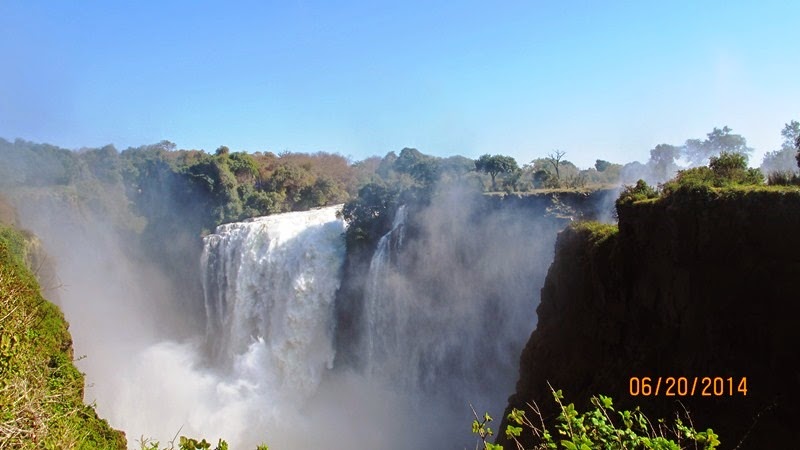Botswana is considered an upper middle income economy, but according to the World Bank 32.9% of the population still lives below the national poverty level. Of course, Botswana is the wealthiest country in sub-Saharan Africa. I know I’ve mentioned some of the unemployment issues in countries like Nigeria (54.7% of the population lives in poverty) and Zimbabwe (72% poverty), that Lesotho (56.6% poverty) used to be so poor that one of their primary exports was human blood, and that Congo (71.3% poverty) is so unfortunate they can’t afford to eat the cassava and instead they eat the leaves from the plant. Poverty alleviation is a huge key term which you hear all over the place. But the truth is most African leaders don’t think poverty can be cured, so they don’t really sweat it.
It should be noted that poverty alleviation is different from economic growth. I have a friend who works for the World Bank. His job is to identify aspiring entrepreneurs, give them micro loans- typically $1,000 or less- in an effort to get them to improve their socioeconomic status. He can’t GIVE this money away! He told me about a conversation he had with a fisherman. The fisherman said he caught three fish each day and then sold them; that would meet his needs. Mr. World Bank explained he would loan him money to buy a new boat, or new nets, or whatever he needed to improve his business so he could catch more fish. The fisherman’s response: “I don’t need to catch more fish.” Mr. WB explained if the fisherman caught more fish he could send his son to university, or have the money if his wife got sick, or maybe just buy some milk for his family. The fisherman said he didn’t need money in case those things happened. He said when his wife got sick he would just catch five or six fish that day to buy her medicine or pay the doctor.
The reason the fisherman in the story didn’t want to earn extra money is because he would never get to save that money, so it was pointless. The challenge with elevating Africa out of poverty and improving standards of living is because the culture here does not encourage future planning. Family ties are important and everything is communal. This means if the fisherman catches 10 fish and suddenly has more money his aunt in the village will show up and ask for the money to pay her medical bills. If he catches 20 fish he won’t see any profit from that either because his distant cousin in the next village will ask for the money to pay the bride price for her son’s upcoming marriage. If he catches 50 fish then the niece of his neighbor’s granddaughter in the country next door will show up on his doorstep asking for a loan to pay for her father’s funeral announcement. And the cycle continues and never ends.
As I continued my conversation with the woman at the conference today she asked me how Africans are able to withstand so much poverty, violence, government instability, persecution, disease and everything else they put up with. Just last night I finished the book David and Goliath by Malcolm Gladwell. In his book, Gladwell states that happiness is measured on a sliding scale in relation to one’s peers. He states that Switzerland has the happiest people in the world. However, Switzerland also has one of the highest suicide rates. By contrast, Africans are significantly less happy because of all the challenges associated with living here, but since everyone else here is miserable (at least in terms of material possessions, wealth, etc.) the suicide rate is very low because they can’t look at others and be envious since everyone is in the same (sad) boat.
















